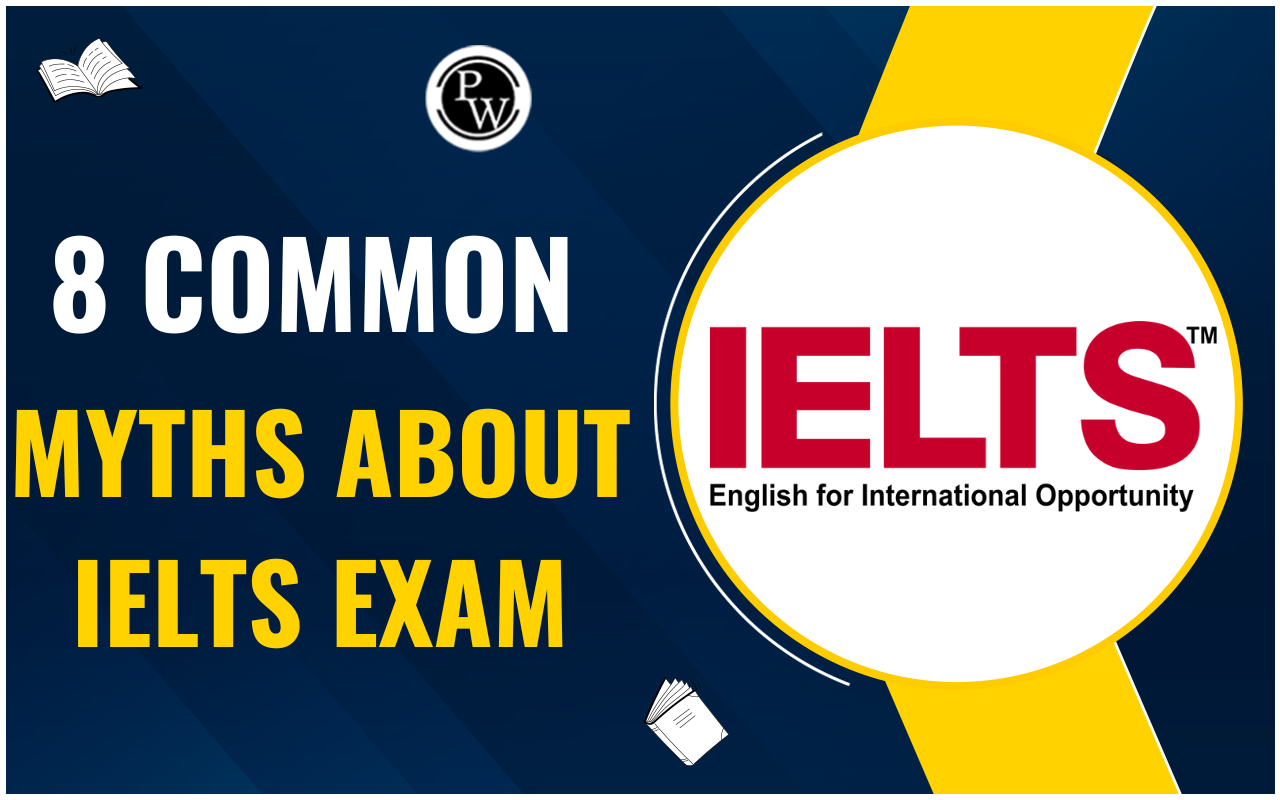

Money as the Unit of Account Reading Answers: Understanding the function of money as a unit of account is crucial for solving questions based on IELTS reading passage on money as a unit of account. Money as the Unit of Account Reading answers passage includes topics on real-world financial systems, currency standards, and inflation. These concepts affect the daily life of people globally. For IELTS aspirants, mastering such passages is crucial to enhance their test performance.
This article presents the IELTS reading passage, related questions, and IELTS reading answers for the functions of money. Candidates can also access tips on how to solve IELTS reading passages on financial systems effectively.
Money as the Unit of Account Reading Answers IELTS Passage
Here is a detailed IELTS passage on money as the unit of accounting. Candidates must go through the passage carefully to understand its main idea and then attempt the practice questions.
Money as the Unit of Accounting
A The most difficult aspect of money to understand is its function as a unit of account. In linear measurement we find the definition of a yard, or a metre, easy to accept. In former times these lengths were defined in terms of fine lines etched onto brass rods maintained in standard laboratories at constant temperatures. Money, however, is much more difficult to define because the value of anything is ultimately in the mind of the observer, and such values will change with time and circumstance. Sir Isaac Newton, as Master of the Royal Mint, defined the pound sterling (£) in 1717 as 113 grains of pure gold. This took Britain off silver and onto gold as defining the unit of account. The pound was 113 grains of pure gold, the shilling was 1/20 of that, and the penny 1/240 of it. By the end of the 19th century the gold standard had spread around most of the trading world, with the result that there was a single world money. It was called by different names in different countries, but all these supposedly different currencies were rigidly interconnected through their particular definition in terms of a quantity of gold.
B In economic life the prices of different commodities and services are always changing with respect to each other. If the potato crop, for example, is ruined by frost or flood, then the price of potatoes will go up. The consequences of that particular price increase will be complex and unpredictable. Because of the high price of potatoes, prices of other things will decline, as demand for them declines. Similarly, the argument that the Middle East crisis following the Iraqi annexation of Kuwait would, because of increased oil prices, have led to sustained general inflation is, although widely accepted, entirely without foundation. With sound money (money whose purchasing power does not decline over time) a sudden price shock in any one commodity will not lead to a general price increase, but to changes in relative prices throughout the economy. As oil increases, other goods and services will drop in price, and oil substitutes will rise in price, as the consequences of the oil price increase work their unpredictable and complex way through the economy. The use of gold as the unit of account during the days of the gold standard meant that the price of all other commodities and services would swing up and down with reference to the price of gold, which was fixed. If gold supplies diminished, as they did when the 1850s gold rushes in California and Australia were finishing, then deflation (a general price level decrease) would set in. When new gold rushes followed in South Africa and again in Australia, in the 1880s and 1890s, the general price level increased gently, around the world, as there was more money in circulation.
C The end of the gold standard began with the introduction of the Bretton-Woods Agreement in 1946. This fixed the value of all world currencies relative to the US dollar, which in turn was fixed to a specific value of gold (US$0.35/oz). However, in 1971 the US government finally refused to exchange US dollars for gold, and other countries soon followed. Governments printed as much paper money or coinage as they wanted, and the more that was printed, the less each unit of currency was worth. The key problem with these government 'fiat' currencies is that their value is not defined; such value is subject to how much money a government cares to print. Their future value is unpredictable, depending as it does on political chance. In past economic calculations of the Australian Institute for Public Policy, incomes and expenditures were automatically converted to dollars of a particular year, using CPI deflators, which are stored in the Institute's computers. When the Institute performs economic calculations into the future, it guesses at inflation rates and includes these guesses in its figures. The guesses are entirely based on past experience. In Australia most current calculations assume a three to four per cent inflation rate.
D The great advantage of the 19th century gold standard was not just that it defined the unit of account, but that it operated throughout almost the entire world. Anthony Trollope tells us in his diaries about his Australian travels in 1872 that a pound of meat, selling in Australia for twopence, would have cost ten pence or even a shilling in the UK. It was this price difference which drove investment and effort into the development of shipboard refrigeration, and opening up of major new markets for Australian meat, at great benefit to the British public. Today we can determine price differences between countries by considering the exchange rate of the day. In twelve months' time, even a month's time, however, a totally different situation may prevail, and investments of time and money made on the basis of an opportunity at an exchange rate of the day, may actually perform poorly because of subsequent exchange rate movements. The great advantage of having a single stable world currency is that such currency would have very high information content. It tells people where to invest their time, energy and capital, all around the world, with much greater accuracy and predictability than would otherwise be possible.
| IELTS Exam Important Links | |
|---|---|
| IELTS Reading Band Score | IELTS Listening Band Score |
| IELTS Speaking Band Score | IELTS Writing Band Score |
Money as the Unit of Account Reading Answers IELTS Reading Questions
Here is a set of IELTS questions based on the money as a unit of account passage. Candidates must read each question to understand its meaning and accurately answer it.
Questions 1-5: Multiple Choice
Choose the correct letter, A, B, C, or D.
1. According to the passage, money as a unit of account is difficult to understand because:
A) It requires complex mathematical calculations
B) Its value depends on individual perception and changes over time
C) It is based on outdated measurement systems
D) It varies between different countries
2.The gold standard in the 19th century resulted in:
A) Economic instability across different nations
B) A single interconnected world monetary system
C) The elimination of price fluctuations
D) Increased difficulty in international trade
3. Under the gold standard, when gold supplies decreased:
A) Inflation would occur globally
B) Only gold prices would be affected
C) Deflation would set in
D) Currency values would become unpredictable
4. The Bretton-Woods Agreement of 1946:
A) Immediately ended the gold standard
B) Fixed all currencies directly to gold
C) Linked world currencies to the US dollar, which was tied to gold
D) Created completely independent national currencies
5. The main disadvantage of modern fiat currencies mentioned in the passage is:
A) They are too expensive to produce
B) Their value is unpredictable due to government printing policies
C) They cannot be used for international trade
D) They are not accepted by financial institutions
Questions 6-10: True/False/Not Given
6. Sir Isaac Newton defined the pound sterling in terms of silver initially.
7. Price increases in one commodity under a sound money system lead to general inflation.
8. The 1971 decision by the US government marked the complete end of gold-backed currency.
9. The Australian Institute for Public Policy uses a 5% inflation rate in their calculations.
10. Anthony Trollope's observations about meat prices led directly to the development of refrigerated shipping.
Questions 11-14: Sentence Completion
Complete the sentences below using no more than three words from the passage.
11. Money is difficult to define because its value exists ultimately in the _______ of the observer.
12. During the gold standard period, all currencies were interconnected through their definition in terms of a _______ of gold.
13. Modern government currencies are called _______ currencies.
14. A single stable world currency would have very high _______ content.
What are the IELTS Reading Answers for the unit of Account?
Here are the answers to all the questions provided above. IELTS aspirants must analyse their performance by referring to these answers.
Money as the Unit of Account Multiple Choice Answers:
-
B - Its value depends on individual perception and changes over time
-
B - A single interconnected world monetary system
-
C - Deflation would set in
-
C - Linked world currencies to the US dollar, which was tied to gold
-
B - Their value is unpredictable due to government printing policies
Money as the Unit of Account True/False/Not Given Answers:
-
False (The passage states that Newton took Britain off silver and onto gold.)
-
False (The passage that states price shocks lead to changes in relative prices, not general inflation.)
-
True (It is written that other countries followed the US decision to stop gold exchange)
-
False (The passage mentions that Australia most current calculations assume a three to four per cent inflation rate.)
-
Not Given (The passage shows correlation but doesn't state direct causation.)
Money as the Unit of Account Sentence Completion Answers:
-
mind
-
quantity
-
fiat
-
information
How to Approach the IELTS Reading on Money?
When solving IELTS passages on money, students should adhere to the following tips:
-
Look for specific vocabulary like "unit of account," "deflation," "fiat currency". Many questions are based on these terms.
-
Recognising important monetary terms also helps in gaining IELTS reading explanations on economic concepts.
-
The passage moves through historical periods. Candidates must note important dates to quickly locate specific sections when questions cover the details of an event.
-
Many questions test your understanding of economic consequences
-
Words like "entirely without foundation" or "unpredictable" are crucial for True/False questions. Therefore, students must understand these sentences with clarity.
Also Read:
- Should You Use All Capital Letters in the IELTS Listening and Reading Tests
- IELTS Reading Mistakes
- How to Improve IELTS Reading Score
- How to Manage Time in IELTS Reading
Guidance of PW IELTS
Physics Wallah offers multiple online IELTS courses for all students. Follow the IELTS pages to better prepare for the exam.
| What is IELTS Exam? | Documents Required for IELTS Registration |
| IELTS exam eligibility requirements | IELTS Exam Fees |
| IELTS test results | IELTS Exam Pattern |
Money as the Unit of Account Reading Answers FAQs
What makes the "money as unit of account" topic challenging for IELTS candidates?
What are the key vocabulary terms I should focus on in IELTS Money and unit of account passage?
Which question types are most common in IELTS reading test?
Can I solve money as unit of account IELTS questions if I don't understand economic concepts?













